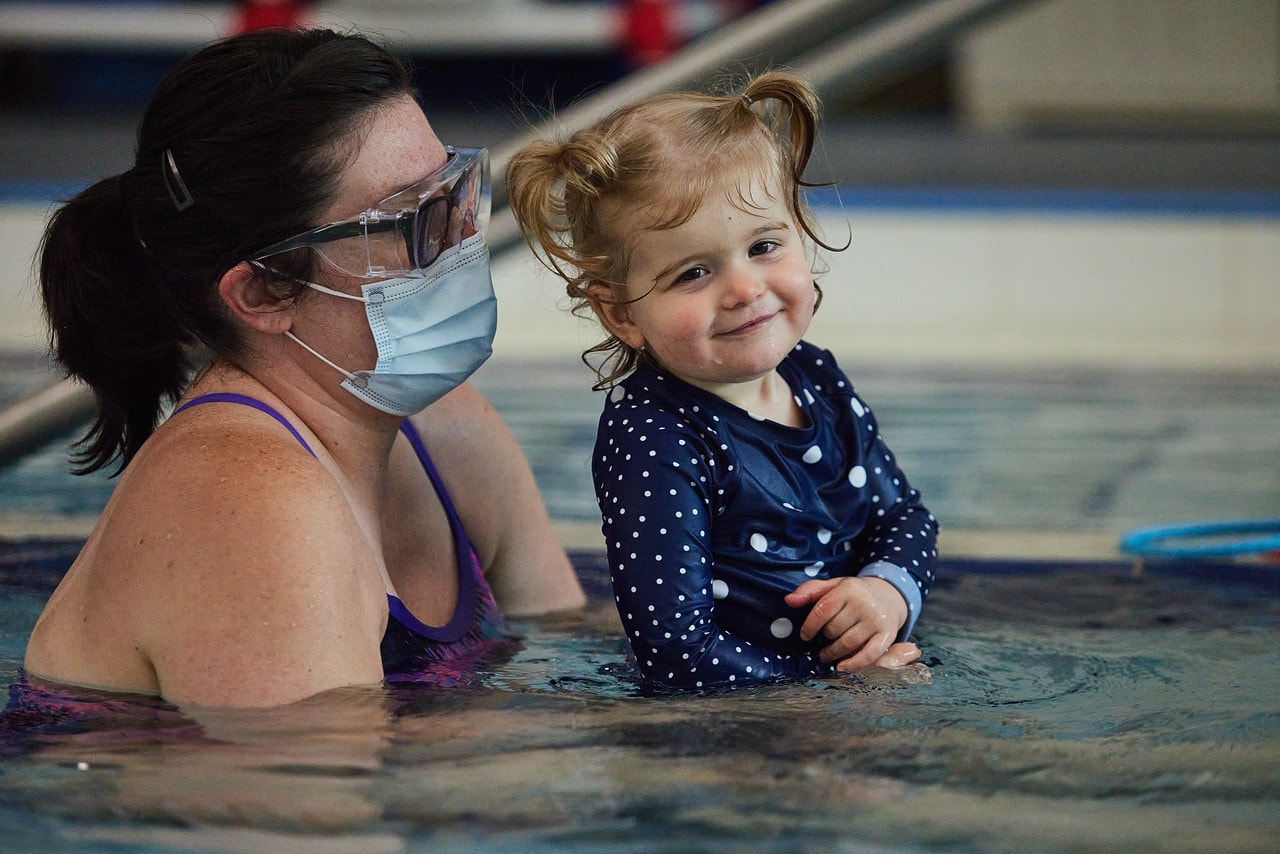When Reagan Bork turned 2 years old, her parents, Ali and Grant, were finally able to put a name to the condition that had affected her since birth: GRIN disorder. A rare genetic condition that can cause development delay, GRIN disorder affects people differently, but the most common symptoms are epilepsy, speech delay, behavioral difficulties and intellectual disability. For Reagan, the condition affected her global development, including her vision, muscle tone, motor skills and speech. She began Early Intervention services through Washington County at age 2 months, but by age 10 months, Reagan still couldn’t sit unsupported, use her hands or tolerate some solid foods.
“We had done multiple rounds of genetic testing before confirming her diagnosis,” Ali says. “With these conditions, it’s like finding a needle in a haystack. Having a confirmed diagnosis has provided more structure and direction for the care she needs.
We wanted to leverage every resource available to us in the community and find a team that would work with us and develop goals that were realistic to her ability.”
That team was Washington Health System Children’s Therapy Center. Even before her diagnosis, Reagan began Physical and Occupational therapy at the WHS Children’s Therapy Center. Today, Reagan attends Occupational Therapy twice per week, Physical Therapy twice per week and Speech-Language Therapy once per week.
A FOCUS ON REAGAN
Before Reagan’s sessions, her therapists work with Ali and Grant to create specific goals based on where Reagan is in her development. “Our Children’s Therapy Center is very individualized to the child,” says
Jamie Streiff, Physical Therapist at WHS Children’s Therapy Center. “Right now for Reagan, we’re working on crawling, pulling up to standing and supported walking. I make therapy play-based for her, so I use toys to get her to move the way I want her to move, for example by placing things just out of her reach.” Streiff makes a list of different activities for Reagan before their sessions, so if Reagan isn’t responding well to
a certain method, Streiff can move on quickly and make sure Reagan benefits from their entire time together. And if Ali, Grant or Reagan’s grandmother, Gigi, aren’t comfortable with any activities or methods, the therapists adjust the plan.
“Their receptiveness to feedback and listening to my concerns as a parent has been great,” Ali says. “The therapists are extremely knowledgeable and adaptive to children with special needs.”
A FAMILY AFFAIR
A vital component to a child’s therapy, family is always welcome to attend appointments at the WHS Children’s Therapy Center. “In Reagan’s case, either Ali, Grant or Gigi attends every single appointment,” says Melissa Rousseau, Occupational Therapist at WHS Children’s Therapy Center. “They’re part of our team, and their involvement is why Reagan has made the progress that she’s made.” According to Rousseau, Gigi, who is a retired ER nurse, doubles as Reagan’s “bootcamp coach.” On the days Gigi accompanies Reagan to Physical and Occupational Therapy appointments, she continues to do sessions with Reagan at home, mimicking whatever the therapists worked on that day. Gigi even dug out her old name tag because, recently, Reagan has become so motivated to play with Rousseau and Streiff’s name tags during therapy that she actively reaches for them.
At 2 1/2 years old, Reagan is now self-feeding with and without silverware, holding her own cup, and
working on her fine motor skills. She can sit independently and walk with her hands held or with a gait trainer.“ Reagan will continue at the WHS Children’s Therapy Center for the foreseeable future,” Ali says. “She continues to make strides and cross goals off of her lists with each therapist.”
For more information on Children’s Therapy – Click here



